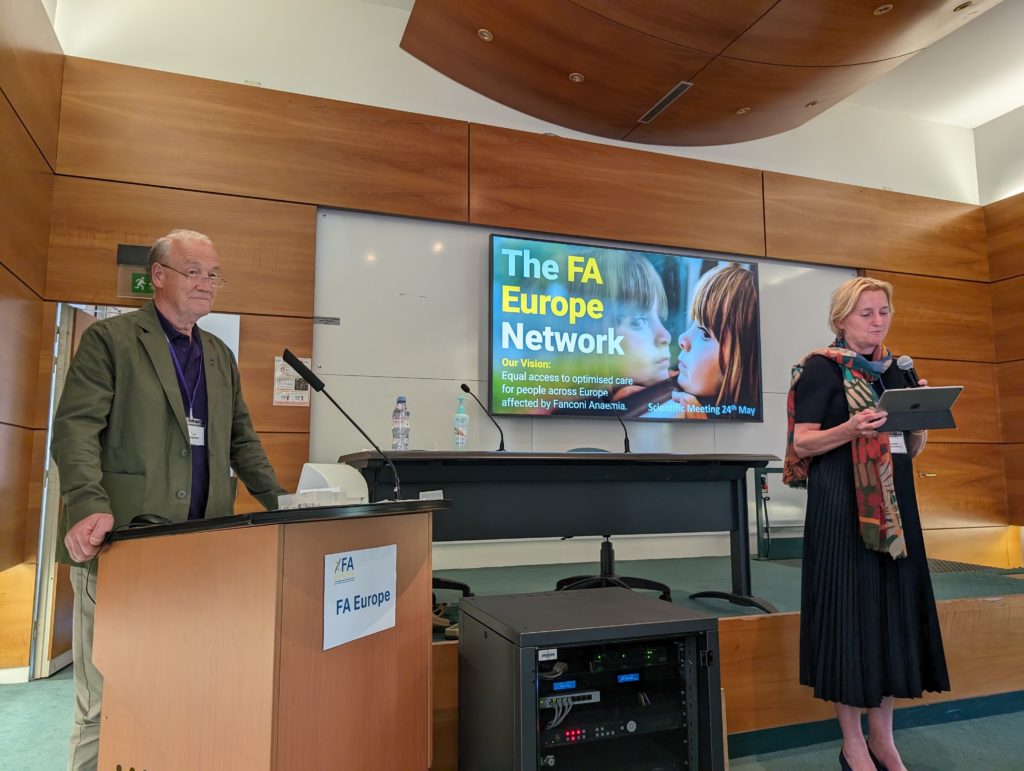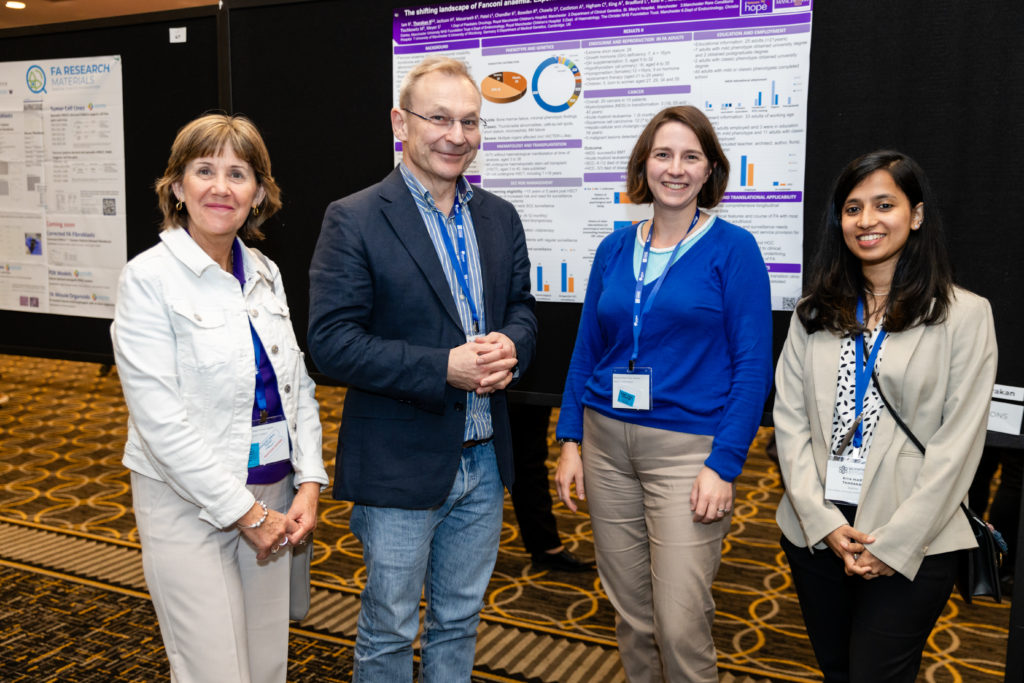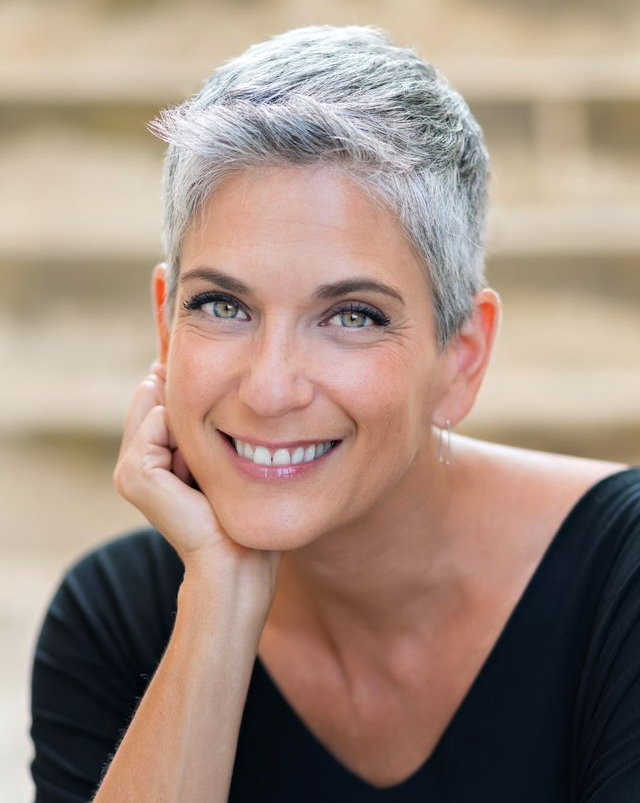In my early high school days, I noticed that I had a knack for biology, and specifically, genetics. It has always made sense to me and it sparks joy in my life. I know what you’re thinking – very nerdy. This joy for biology continued into my college career. Originally, I was going to apply my love of science in the Air Force. I wanted to work in their chemistry or engineering departments to help create military technology. As time went on, my goals changed and I became more interested in genetic research. Unfortunately, the Air Force did not have a department for this, so I decided to pursue flying drones for the military. However, this just didn’t capture my interest like genetics did.
During this period of weighing my interests and possible career paths in the Air Force, I started to have some unexplainable medical problems. I was rushed back home to Florida in order to get a diagnosis at Moffitt Cancer Center. After a surgery to fix my broken talis bone (a small bone in your ankle), and many visits to the hematologist, I was finally diagnosed with Fanconi anemia at the age of 20. Soon after, my family and I found out that my brother was a perfect bone marrow match for me. We actually received this call while we were lying on the beach – such a beautiful background for one of the most important phone calls of my life. I was raced to transplant shortly after being diagnosed and had a textbook transplant on October 12, 2016.
Since then, I have gone back to college to finish my bachelor’s in biology that I started in the Air Force. Due to the fact that I have FA, the Air Force would not allow me to go back. As much as I fought them on my discharge, I believe that it was a blessing in disguise. I finally have a platform that will allow me to work in genetics.
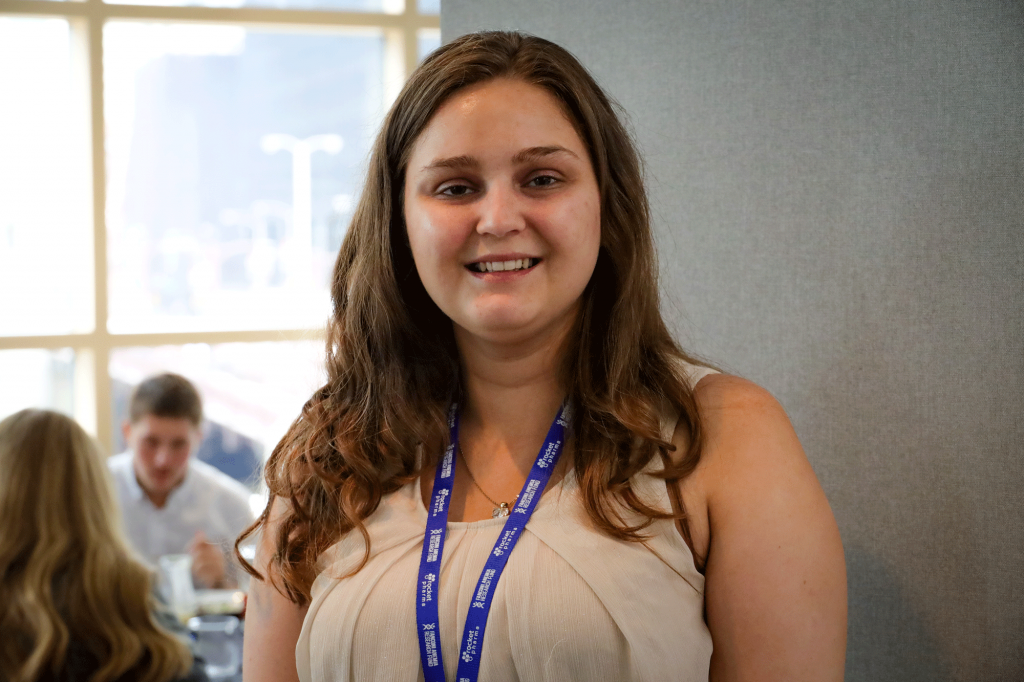
At the FAdult Meeting in September 2019
This summer, I had the honor of working in Dr. Alan D’Andrea’s lab at the Dana-Farber Cancer Institute in Boston. After meeting Dr. D’Andrea at the 2018 FA Adult Meeting and Symposium, I knew that I had to learn from him. He quickly agreed to having me work in his lab for three months, where I learned from some of the most amazing researchers. As the nerd that I am, I found the smallest task and machine to be exciting. I assisted in some drug testing, looked at how drugs affected certain proteins, and many other experiments for two of the post-docs working on improving the lives of people with FA. These researchers come from around the world and usually do not have any personal investment in FA. However, they are so dedicated to their work. Most weekends, you will find them at the lab doing experiments. They showed me the dedication and skill that it takes to be a researcher. They always believed in me, even after a big mistake.
The people who research our disease are just as amazing as the people who have the disease.
After coming home and getting ready for my final year of college, I have to believe that I left an impression on the researchers there. I hope that I left them with a sense of how much people with FA fight and count on their work. I also hope to have inspired them with my story to stay focused and dedicated to finding answers about this disease. There is no doubt in my mind that these researchers can discover new treatments to give us longer lives with a higher quality of living.
As I look towards the future, I have my eyes set on graduate school to get a PhD in genetics. I plan to use this degree to research FA and maybe even find a cure. This fall I will be completing applications for graduate programs and going to interviews come winter and spring time. I do not know where this journey will lead or which state it will take me to, but I am excited for the adventure of a lifetime. I just hope that this typical Florida girl can find someplace warm to study for the next few years!
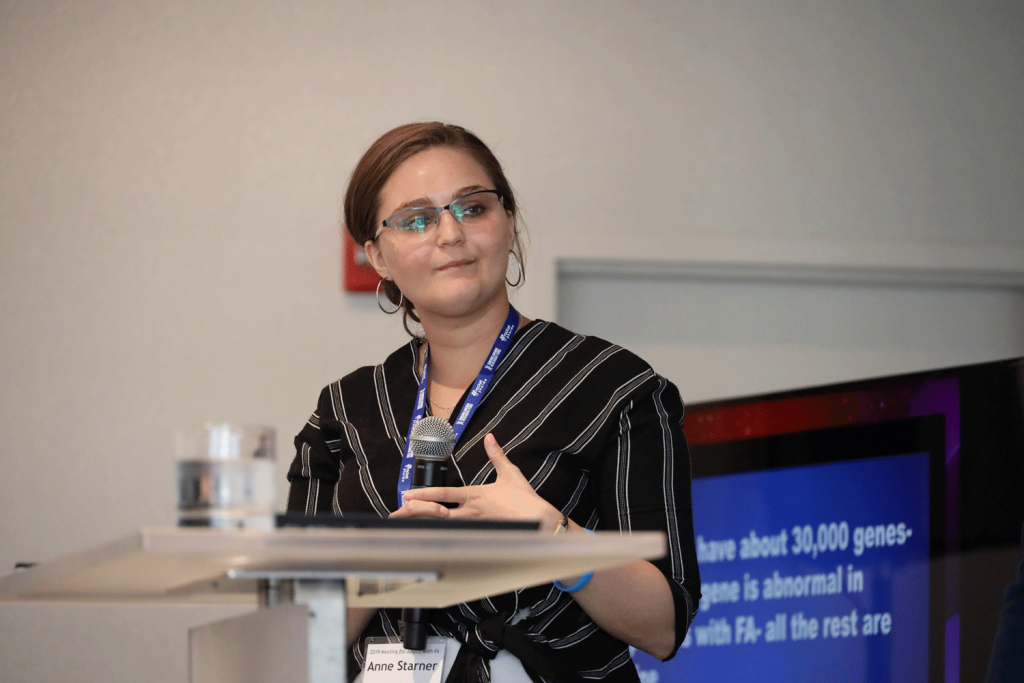
Participating in FA Jeopardy at the 2019 FAdult Meeting in Chicago


